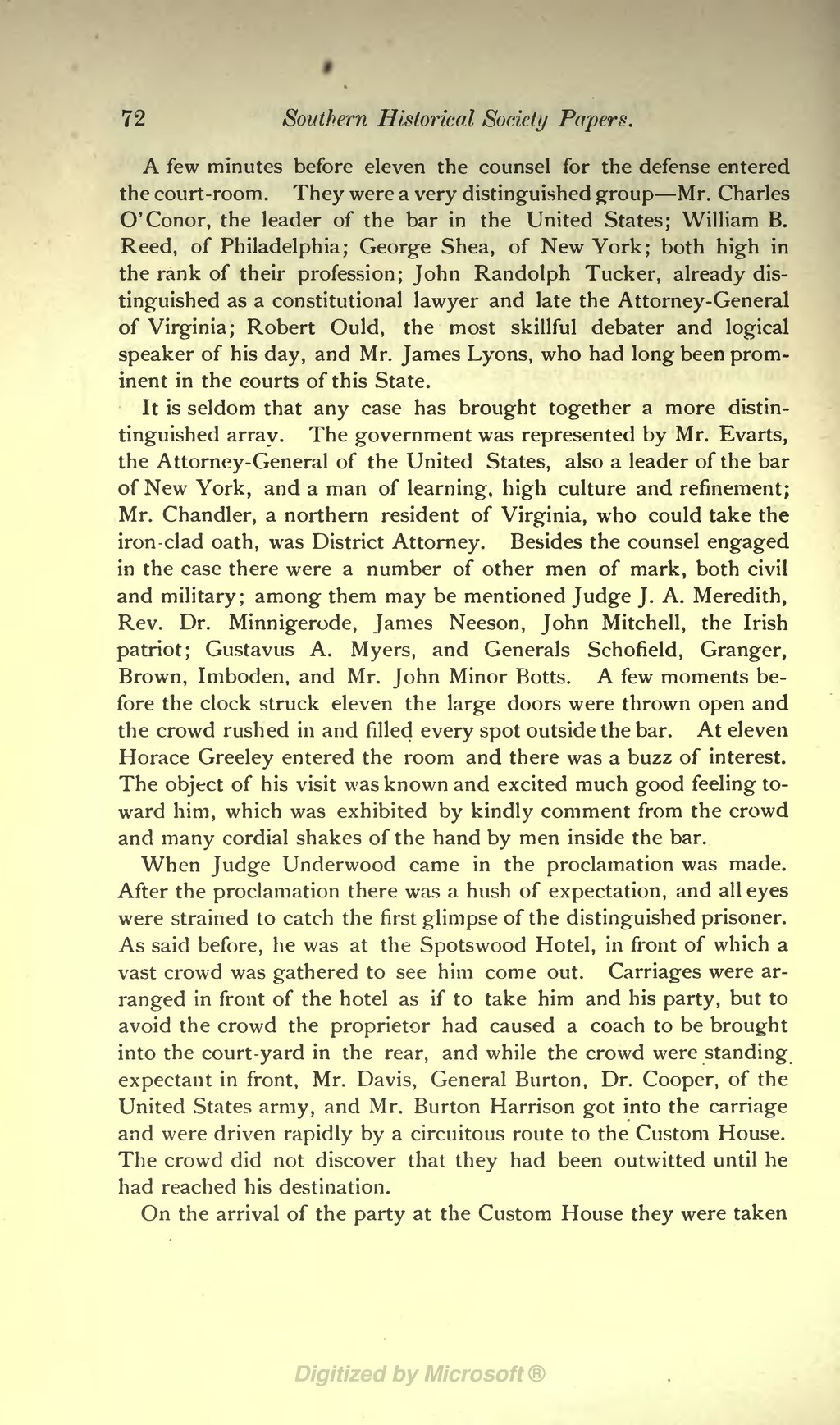72 Southern Historical Society Papers.
A few minutes before eleven the counsel for the defense entered the court-room. They were a very distinguished group Mr. Charles O' Conor, the leader of the bar in the United States; William B. Reed, of Philadelphia; George Shea, of New York; both high in the rank of their profession; John Randolph Tucker, already dis- tinguished as a constitutional lawyer and late the Attorney-General of Virginia; Robert Ould, the most skillful debater and logical speaker of his day, and Mr. James Lyons, who had long been prom- inent in the courts of this State.
It is seldom that any case has brought together a more distin- tinguished array. The government was represented by Mr. Evarts, the Attorney-General of the United States, also a leader of the bar of New York, and a man of learning, high culture and refinement; Mr. Chandler, a northern resident of Virginia, who could take the iron-clad oath, was District Attorney. Besides the counsel engaged in the case there were a number of other men of mark, both civil and military; among them may be mentioned Judge J. A. Meredith, Rev. Dr. Minnigerode, James Neeson, John Mitchell, the Irish patriot; Gustavus A. Myers, and Generals Schofield, Granger, Brown, Imboden, and Mr. John Minor Botts. A few moments be- fore the clock struck eleven the large doors were thrown open and the crowd rushed in and filled every spot outside the bar. At eleven Horace Greeley entered the room and there was a buzz of interest. The object of his visit was known and excited much good feeling to- ward him, which was exhibited by kindly comment from the crowd and many cordial shakes of the hand by men inside the bar.
When Judge Underwood came in the proclamation was made. After the proclamation there was a hush of expectation, and all eyes were strained to catch the first glimpse of the distinguished prisoner. As said before, he was at the Spotswood Hotel, in front of which a vast crowd was gathered to see him come out. Carriages were ar- ranged in front of the hotel as if to take him and his party, but to avoid the crowd the proprietor had caused a coach to be brought into the court-yard in the rear, and while the crowd were standing expectant in front, Mr. Davis, General Burton, Dr. Cooper, of the United States army, and Mr. Burton Harrison got into the carriage and were driven rapidly by a circuitous route to the Custom House. The crowd did not discover that they had been outwitted until he had reached his destination.
On the arrival of the party at the Custom House they were taken
